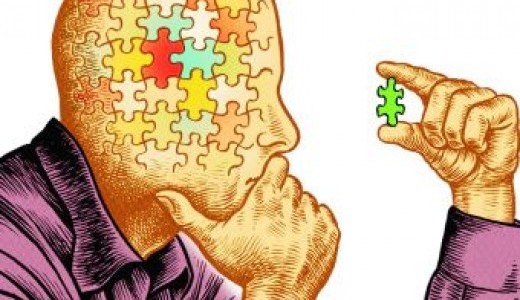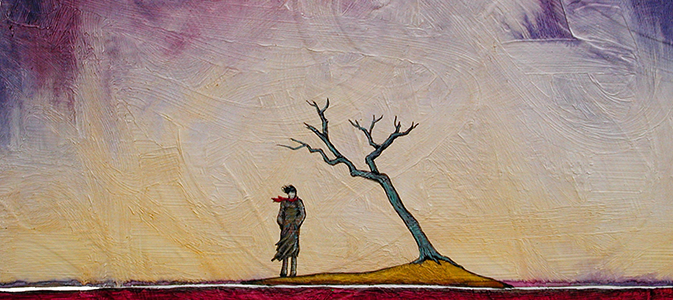“Paddle, paddle, paddle—paddle HARD!” These words, whether shouted by a surf instructor encouraging a student or uttered non-verbally in my head, are aimed at creating the same outcome: to catch a wave and glide down its open peeling face. Every surfer knows this simple joy; the sensation of sliding across the face of a wave inspires us to do it again and again. What is so alluring about this particular experience? Ask any surfer that question and you are likely to get a wide variety of answers, but at some point, they will just wistfully look out to the horizon and say, “I don’t know, I just love it. It makes me feel good, I guess.”
If you were to ask this surfer that question, I would probably start with explaining that, for me, surfing is a powerful metaphor for life. Everything we can experience, sense, think, and do is literally vibrating energy. When I am riding a wave, I am not riding a wave of water, I am riding a wave of energy moving through water. The ocean is a medium that invites me to interact with the Earth’s energy at one of its most dynamic moments. An ocean wave hitting the beach is the culmination of wind energy transferred to water. Having traveled from many miles away, this energy finally meets the shallow bottom and heaves the ocean into the giant gaping maw of Mavericks or the peeling walls of machinelike perfection that have drawn hordes to Malibu for generations. Big wave chargers and longboard sliders engage with this energy in their own way, spontaneously navigating varying challenges, whether they be mental, spiritual, physical or environmental; surfing demands that we meet the ocean in the present moment and on her terms.
I love the saying, “You can’t stop the waves, but you can learn to surf.” As we go through life and if we pay attention, we learn how to live life. We find the courage to overcome our fear of drowning that could keep us from ever paddling out in the first place, just as we endeavor to overcome the fears that keep us playing small in life and hinder us from achieving our potential. We acquire knowledge of board design and the tides, currents, and bottom bathymetry so we are perfectly positioned and equipped for the wave of the day just as we prepare and establish best practices in business to maximize opportunities when they present themselves. Surfing brings us face-to-face with our physical and mental limitations and provides us a play space to experiment and push through our limitations. Surfing informs us that when we are at play, our mind is at its most creative and innovative and that doing is work while being is effortless.
A Buddhist proverb says that in the beginner’s mind there are many possibilities, but in the expert’s mind there are few. Surfing reminds us that no matter how many times we have surfed, no matter how experienced we think we are, as in life, there is always something to learn. The ocean has a knack for humbling the most experienced surfer or revealing a fresh way to connect with its energy. When I first started surfing, I was fortunate to get instruction from an accomplished big wave surfer from the North Shore of Oahu. I could not understand why he would want to spend time with a novice when he was readily accepted at the most competitive and technically difficult breaks on the North Shore. When I finally asked him, his answer was simple: He said that after a lifetime of surfing, he found he could reconnect with his original joy simply by working with newbies; he understood how the expert learns from the beginner. For me at the time, just making a wave was cause for celebration. The surf learning curve can be quite steep. I learned early on that the only way to make sense of the experience was to celebrate every progression and revere every new insight, no matter how small. In other aspects of life we rarely allow ourselves such indulgences. Experts, if they take the time, learn that hanging out with beginners can be quite a party. After every session we return to the shore, exhausted and breathless, eager to carry on the tradition of regaling our companions with tall tales about the huge waves we rode. It was in those moments, when my body was physically spent and my mind buzzing with a new kind of exhilaration, that I began to perceive myself differently; I bonded with my heart and soul in a new way. I had a new identity and I relished getting to know me, the surfer.
Just like our most challenging relationships teach us about ourselves, our relationship with surfing and the ocean holds up a mirror and points it directly back at us. The ocean is mysterious, powerful, and exquisitely deadly. It is the source of life on our planet and reflects Earth’s movement through the heavens in its tides and currents. When we step from land into the liquid depths of the sea, we are stepping into a primal mystery. It is at once the dark night of the soul and an ecstatic expression of abundance and life itself. Dichotomies like this abound in surfing and trying to make sense of it in some linear, logical way is futile. Similarly, it is often impossible to make sense of the events that occur in our lives and in the world around us—we can fight it or we can simply accept what is. Gerry Lopez, aka “Mr. Pipeline” wrote in his book Surf is Where You Find It, “There needs to be a calmness that allows the surfer to be centered and aware of all that is happening around him without becoming unnerved. Although instinct isn’t the right word, something like it, along with a clear mind, work better than thinking because, at Pipe, there isn’t enough time for thought. A Zen-like mind that is empty of thoughts allows a stronger connection with the wave.” What Gerry is talking about is not sport and may not even be art, but he is talking about tuning in to the present moment and becoming conscious enough so that the surfer becomes the wave rather than experiencing himself apart from the wave.
So next time you are at the beach and you cross paths with someone who has just come out of the ocean, ask them why they love their sport. And if you encounter a certain brand of surfer and clumsily refer to what they do as a sport, they will set you straight and explain that any activity that moves us to raise our level of awareness in perfect alignment with the present moment, allowing us to glimpse that Divine oneness, is on a level apart from mere sport. Perceiving surfing through this profound lens is a gift. I embrace surfing as a metaphor for life, my life—and what a wonderful life it is.
Peace and surf.






